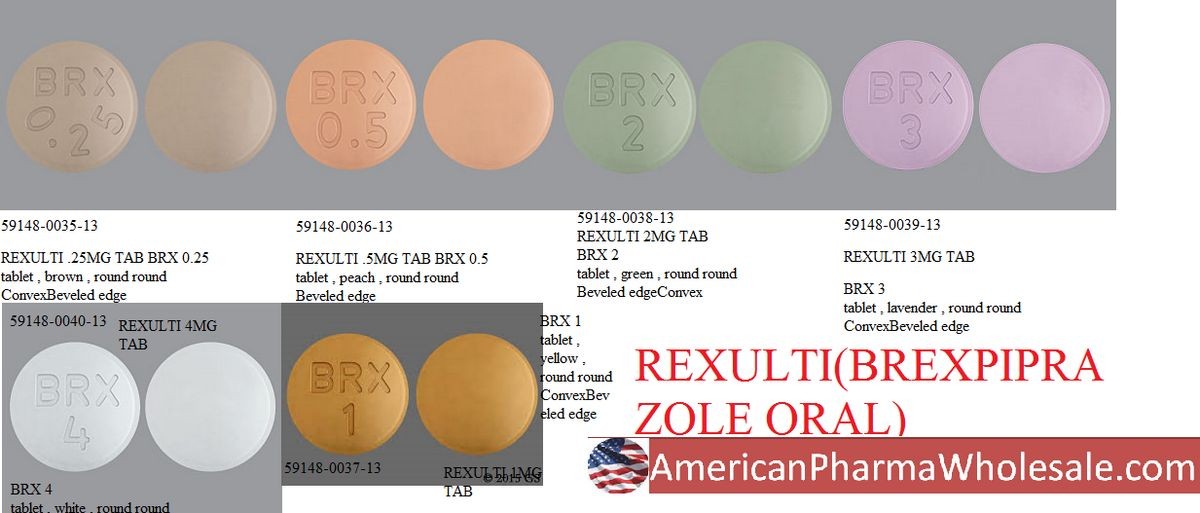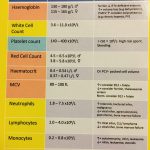
Contents
- 1 Rexulti
- 1.0.1 Warnings
- 1.0.2 Side Effects of Rexulti
- 1.0.3 Dosage of Rexulti
- 1.0.3.1 Recommended Dosage for Adjunctive Treatment of Major Depressive Disorder (Adults)
- 1.0.3.2 Recommended Dosage for Schizophrenia (Adults and Pediatric Patients 13 to 17 Years)
- 1.0.3.3 Recommended Dosage for Agitation Associated with Dementia Due to Alzheimer’s Disease
- 1.0.3.4 Recommended Dosage in Patients with Hepatic Impairment
- 1.0.3.5 Recommended Dosage in Patients with Renal Impairment
- 1.0.3.6 Dosage Modifications for CYP2D6 Poor Metabolizers and for Concomitant Use with CYP Inhibitors or Inducers
Rexulti
Rexulti (brexpiprazole) is an atypical antipsychotic used as an adjunctive therapy to antidepressants for major depressive disorder (MDD), schizophrenia, and agitation associated with Alzheimer’s disease.
Rexulti is prescribed to treat:
- Major depressive disorder (MDD) in adults: Rexulti is used with antidepressant medicines when an antidepressant alone is insufficient.
- Schizophrenia in adults and children 13 years and older.
- Agitation associated with dementia due to Alzheimer’s disease. It is not indicated for as-needed treatment.
Do not take Rexulti if you are allergic to brexpiprazole or any ingredients in Rexulti.
Prior to taking Rexulti, inform your healthcare provider if you:
- have diabetes or a family history of diabetes
- have high levels of cholesterol, triglycerides, LDL-cholesterol or low HDL-cholesterol levels
- have or had seizures
- have or had low or high blood pressure
- have or had heart problems or a stroke
- have or had a low white blood cell count
Warnings
Increased Mortality in Elderly Patients with Dementia-Related Psychosis; and Suicidal Thoughts and Behaviors
- Elderly patients with dementia-related psychosis treated with antipsychotic drugs are at increased risk of death. Rexulti is not approved for the treatment of patients with dementia-related psychosis without agitation associated with dementia due to Alzheimer’s disease.
Suicidal Thoughts and Behaviors
- Antidepressants increased the risk of suicidal thoughts and behaviors in patients aged 24 years and younger in short-term studies.
- Monitor closely for worsening of symptoms and for emergence of suicidal thoughts and behaviors.
- The safety and efficacy of Rexulti have not been established in pediatric patients with MDD.
Side Effects of Rexulti
Rexulti may cause:
- Stroke in elderly people that can lead to death.
- Neuroleptic Malignant Syndrome (NMS): symptoms include high fever, stiff muscles, confusion, sweating, changes in pulse, heart rate, and blood pressure. These may be symptoms of a serious condition that can lead to death. Seek medical attention if you have any of these symptoms.
- Uncontrolled body movements (tardive dyskinesia)
- Unusual urges such as gambling, binge eating, or compulsive behavior. If you experience these urges, consult your healthcare provider.
- Low white blood cell count
- Decreased blood pressure (orthostatic hypotension)
- Seizures (convulsions)
- Problems controlling body temperature
- Difficulty swallowing
- Metabolism issues: high blood sugar, increased fat levels in the blood, and weight gain
Call your healthcare provider if you experience symptoms of high blood sugar:
- excessive thirst
- nausea
- increased urination
- excessive hunger
- weakness or fatigue
- confusion or fruity breath odor
The most common side effects of Rexulti include weight gain and restlessness.
These are not all the possible side effects of Rexulti. For more information, consult your healthcare provider or pharmacist.
Contact your doctor for medical advice about side effects. You may also report side effects to the FDA at 1-800-FDA-1088.
Dosage of Rexulti
Take Rexulti orally, once daily with or without food.
Recommended Dosage for Adjunctive Treatment of Major Depressive Disorder (Adults)
The recommended starting dosage for the adjunctive treatment of MDD in adults is 0.5 mg or 1 mg once daily. Increase to 2 mg once daily based on the patient’s clinical response and tolerability. Maximum daily dosage is 3 mg. Reassess periodically to determine the need for continued treatment.
Recommended Dosage for Schizophrenia (Adults and Pediatric Patients 13 to 17 Years)
Adults: Start with 1 mg once daily for the first 4 days. Increase to 2 mg once daily from day 5 to day 7. On day 8, the dosage can be increased to a maximum of 4 mg once daily based on clinical response and tolerability. Recommended target dosage is 2 to 4 mg once daily.
Pediatric Patients (13 to 17 years): Start with 0.5 mg once daily for the first 4 days. Increase to 1 mg per day from day 5 to day 7. On day 8, increase to 2 mg based on clinical response and tolerability. Weekly dose increases can be made in 1 mg increments. Recommended target dosage is 2 to 4 mg once daily. Maximum daily dosage is 4 mg.
Recommended Dosage for Agitation Associated with Dementia Due to Alzheimer’s Disease
Start with 0.5 mg once daily for the first 7 days. Increase to 1 mg once daily from days 8 to 14. On day 15, increase to 2 mg once daily. Recommended target dose is 2 mg once daily. After at least 14 days, dosage can be increased to a maximum of 3 mg once daily based on clinical response and tolerability.
Recommended Dosage in Patients with Hepatic Impairment
The maximum recommended dosage in patients with moderate to severe hepatic impairment (Child-Pugh score ≥7) is:
- 2 mg once daily in patients with MDD or agitation associated with dementia due to Alzheimer’s disease
- 3 mg orally once daily in patients with schizophrenia
Recommended Dosage in Patients with Renal Impairment
The maximum recommended dosage in patients with creatinine clearance CrCl:
- 2 mg orally once daily in patients with MDD or agitation associated with dementia due to Alzheimer’s disease
- 3 mg orally once daily in patients with schizophrenia
Dosage Modifications for CYP2D6 Poor Metabolizers and for Concomitant Use with CYP Inhibitors or Inducers
Dosage modifications are recommended in patients who are known cytochrome P450 (CYP) 2D6 poor metabolizers and in patients taking concomitant CYP3A4 inhibitors, CYP2D6 inhibitors, or strong CYP3A4 inducers. Adjust the Rexulti dosage accordingly based on the specific factors. If discontinuing the concomitant drug, adjust the Rexulti dosage to its original level. If discontinuing the concomitant CYP3A4 inducer, reduce the Rexulti dosage to the original level over 1 to 2 weeks.
Refer to Table 1 for dosage modifications:
| Factors | Adjusted Rexulti Dosage |
| CYP2D6 Poor Metabolizers | |
| CYP2D6 poor metabolizers | Administer half of the recommended dosage. |
| Known CYP2D6 poor metabolizers taking strong/moderate | Administer a quarter of the recommended dosage. |
| CYP3A4 inhibitors | |
| Patients Taking CYP2D6 Inhibitors and/or CYP3A4 Inhibitors | |
| Strong CYP2D6 inhibitors* | Administer half of the recommended dosage. |
| Strong CYP3A4 inhibitors | Administer half of the recommended dosage. |
| Strong/moderate CYP2D6 inhibitors with strong/moderate CYP3A4 inhibitors | Administer a quarter of the recommended dosage. |
| Patients Taking CYP3A4 Inducers | |
| Strong CYP3A4 inducers | Double the recommended dosage over 1 to 2 weeks. |
| *In the clinical studies examining the use of Rexulti for the adjunctive treatment of MDD, dosage was not adjusted for strong CYP2D6 inhibitors (e.g., paroxetine, fluoxetine). Thus, CYP considerations are already factored into general dosing recommendations, and Rexulti may be administered without dosage adjustment in patients with MDD. | |
(Table 1 continued)
| Factors | Adjusted Rexulti Dosage |
| CYP2D6 Poor Metabolizers | |
| CYP2D6 poor metabolizers | Administer half of the recommended dosage. |
| Known CYP2D6 poor metabolizers taking strong/moderate | Administer a quarter of the recommended dosage. |
| CYP3A4 inhibitors | |
| Patients Taking CYP2D6 Inhibitors and/or CYP3A4 Inhibitors | |
| Strong CYP2D6 inhibitors* | Administer half of the recommended dosage. |
| Strong CYP3A4 inhibitors | Administer half of the recommended dosage. |
| Strong/moderate CYP2D6 inhibitors with strong/moderate CYP3A4 inhibitors | Administer a quarter of the recommended dosage. |
| Patients Taking CYP3A4 Inducers | |
| Strong CYP3A4 inducers | Double the recommended dosage over 1 to 2 weeks. |
| *In the clinical studies examining the use of Rexulti for the adjunctive treatment of MDD, dosage was not adjusted for strong CYP2D6 inhibitors (e.g., paroxetine, fluoxetine). Thus, CYP considerations are already factored into general dosing recommendations, and Rexulti may be administered without dosage adjustment in patients with MDD. | |


